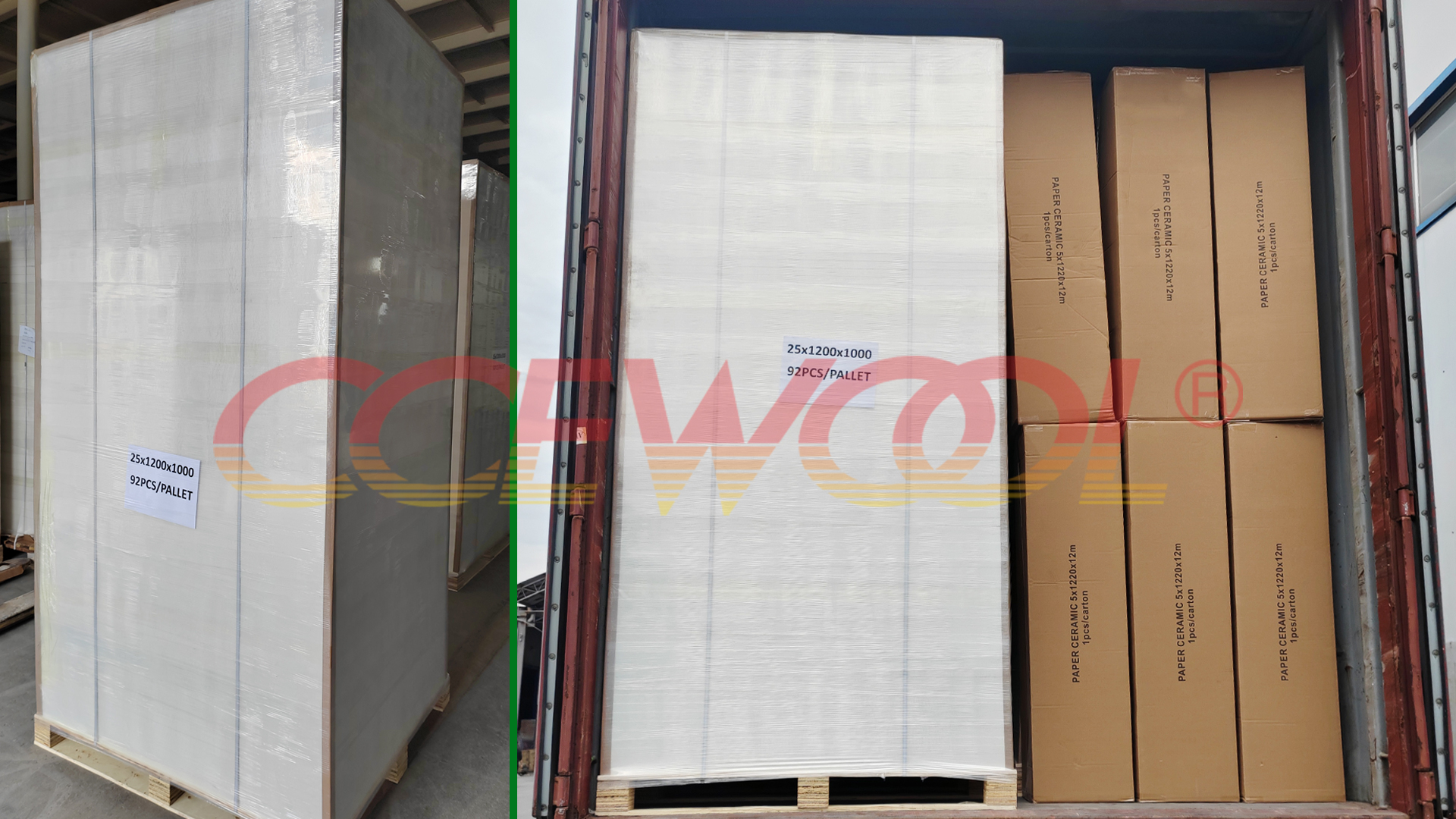Ceramic Fiber Board Insulation – CCEWOOL®
- 24 Mar, 2025
- Insight

In the glass manufacturing industry, glass furnaces operate at extremely high temperatures, often exceeding 1600°C. The stability, thermal efficiency, and lifespan of the furnace directly impact production efficiency and product quality. Therefore, choosing high-performance refractory insulation materials is essential. With its low thermal conductivity, high-temperature resistance, and excellent mechanical strength, CCEWOOL® ceramic fiber board insulation is the ideal choice for both hot face and backup insulation layers in glass furnaces.
Why Do Glass Furnaces Need Ceramic Fiber Board Insulation?
- Low Thermal Conductivity for Enhanced Energy Efficiency
Glass furnaces require continuous high-temperature operation, and traditional refractory materials with higher thermal conductivity can cause significant heat loss, leading to increased energy consumption. CCEWOOL® ceramic fiber board insulation features extremely low thermal conductivity, minimizing heat loss, improving furnace energy efficiency, and reducing fuel costs, ultimately lowering production expenses. - High-Temperature Resistance for Stable Furnace Operation
CCEWOOL® ceramic fiber board insulation withstands extreme temperatures of up to 1430°C, maintaining structural integrity and insulation efficiency even under the demanding conditions of glass furnace operations. This prevents cracks or deterioration due to temperature fluctuations, ensuring long-term furnace stability. - Excellent Thermal Shock Resistance for Extended Furnace Lifespan
During furnace operation, frequent temperature changes can cause thermal stress, leading to cracking or peeling in conventional refractory materials. CCEWOOL® ceramic fiber board insulation offers exceptional thermal shock resistance, preventing damage caused by rapid temperature fluctuations and significantly prolonging the service life of the furnace lining. - High Mechanical Strength for Easy Installation & Maintenance
Manufactured using advanced wet-forming technology, CCEWOOL® ceramic fiber board insulation has uniform density and high strength, making it resistant to breakage or deformation during installation. Its lightweight and durable properties allow for easier installation and maintenance, reducing downtime and enhancing production efficiency.
Polish Customer
Cooperation Years: 9 years
Ordered Product: CCEWOOL® ceramic fiber board insulation
Product Size: 10/25/40x1000x1200mm
Recently, CCEWOOL® successfully delivered a batch of ceramic fiber board insulation to a Polish customer. The customer highly praised the product's low thermal conductivity, high-temperature resistance, and superior thermal shock performance. They reported that CCEWOOL® insulation significantly improved furnace energy efficiency, reduced operational costs, and extended the service life of the furnace lining. Additionally, the customer appreciated CCEWOOL®'s reliable supply and excellent service, looking forward to further long-term cooperation.
With its outstanding insulation performance, superior temperature stability, and high mechanical strength, CCEWOOL® ceramic fiber board insulation is the ideal solution for glass furnace insulation, helping businesses improve energy efficiency, reduce costs, and extend equipment lifespan.



